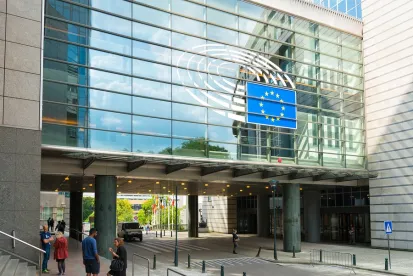Antitrust and Competition
The General Court of the EU Overturns a Commission Decision to Prohibit a £10.25bn Telecom Takeover in the UK
In 2016, the European Commission (Commission) blocked the proposed acquisition of a UK mobile telecom retailer by a UK Mobile Network Operator (MNO). The Commission considered that the £10.25bn takeover would have eliminated competition between two important entities in the UK mobile telephony market. It added that the reduction from four to three competitors would have likely had a negative impact on the ability of the other operators to compete on prices as well as other key areas, such as innovation, network and quality of services, to the detriment of consumers. In order to address the Commission’s competition concerns, the notifying party offered a range of remedies, including divestitures and behavioural commitments, to strengthen network capacity and encourage entry by new operators. However, the Commission found the remedy proposals to be insufficient and prohibited the transaction.
In a judgment of 28 May 2020 and following an appeal from the MNO, the General Court of the EU (GCEU), the lower court of the EU, upheld the appeal and annulled the Commission’s decision. The GCEU found that the Commission wrongly applied the legal standard to demonstrate the adverse effects of the transaction on prices, quality and consumers choice. The court ruled that the Commission committed “several errors of law” when determining the potentially harmful effects stemming from the transaction and that it had failed to prove that price would rise or that competition would be impeded as a result of the transaction.
The GCEU’s judgment is one of the only two successful appeals against EU merger prohibitions in the last 18 years. With respect to merger decisions, there is generally a strong deference of the EU courts towards the Commission’s assessment of the merits of a case. This is because the EU courts grant the Commission a wider margin of appreciation in relation to complex economic matters and limit their judicial review to manifest errors of assessment.
In the present case, the GCEU sends a clear message regarding the boundary of the Commission’s margin of appreciation of complex mergers. This judgment will have significant implications and could trigger further telecoms consolidations in several European markets. It is also a welcome step as it suggests that the EU courts are likely to scrutinize more closely the Commission’s assessment of mergers.
The GCEU’s judgment can be appealed to the Court of justice of the EU (CJEU), the European highest court. The Commission shall decide whether to appeal to the CJEU on a point of law. In that regard, the EU Competition Commissioner Vestager recently stated that “there are a lot of new legal issues being raised in the judgment, and on the basis of that, of course, we will decide whether to appeal or not.”
The French Competition Authority Publishes a Study on Competition and E-Commerce
On 5 June 2020, the French Competition Authority (FCA) published a study providing an overview of issues affecting distribution business and companies’ online practices. The study is part of a broader discussion within the FCA on the digital market specificities and on the FCA’s tools and powers to address the challenges relating to technological innovation.
In the context of growing e-commerce and continued development of digital technologies profoundly affecting the distribution landscape, the traditional “brick and mortar” distribution model faces strong competition challenges.
According to the FCA’s study, the entrance of new operators into the market makes Internet to contribute to the increase of competition. To this extent, the existence and development of online commerce has a pro-competitive effect and mitigates the competitive risks that could otherwise arise from mergers and acquisitions, vertical agreements or abuse of dominant position.
However, the competitive pressure from online sales may differ depending on the sector concerned. Each sector shall therefore be analysed on a case-by-case basis in order to determine whether the characteristics of products and customers are likely to mitigate or to reinforce this competitive pressure. Furthermore, taking into account the competitive pressure has also lead the FCA to adapt its grid of analysis, in particular the evaluation of market shares, or to consider new factors and competitive risks related to network effects or big data.
The study also shows that national competition authorities across EU countries assess online commerce, not only with regard to the behaviour of manufacturers or distributors, but also considering intermediaries or online platforms, the role of which is increasingly important. Indeed, in the past years, numerous cases initiated by the competition authorities have shown that competition law is capable of detecting, analysing and punishing the behaviour of these intermediaries when they restrict competition on the digital market.
Digital Economy
The Commission Launched Consultation on Digital Services Act Package
The Commission launched a public consultation on the Digital Services Act package (DSA) in June which covers both e-commerce rules and a new ex ante regulatory instrument. This initiative was envisaged in Commission President von der Leyen’s political guidelines and further clarified in the Commission's Communication on “Shaping Europe's Digital Future” (Communication) published in February 2020.
The envisaged measures can be summarized as follows:
-
E-commerce rules are expected to cover rules to harmonise responsibilities of online platforms and information service providers. While the Commission’s Inception impact assessment lists several options on how to tackle these issues, the Commission generally aims to further clarify the role and obligations of online intermediaries, notably with respect to harmonised obligations to maintain ‘notice-and-action’ systems, more effective redress and protection against unjustified removal for legitimate content and goods online.
-
The Commission also envisages a more effective governance system to ensure a certain level of enforcement harmonization across the EU Single Market, while guaranteeing the respect of fundamental rights. The new rules could be covering also non-European platforms active in the EU.
-
The ex ante regulatory instrument would address the issue of large platforms with significant network effects acting as gatekeepers. In this case, the Commission’s Inception impact assessment provides an overview of possible policy options, including general rules for all platforms of a certain scale (such as “blacklisted” practices) and tailored regulatory obligations for specific gatekeepers (such as data access obligations, data portability or interoperability requirements).
According to the Adjusted Commission Work Programme, the DSA is now expected at the end of 2020. The DSA consultation is open until 8 September 2020.
New Transparency Bill Approved by Japanese Parliament
On 27 May 2020, the upper house of the Japanese Parliament approved a bill requiring big tech companies to improve transparency and fairness when dealing with Japanese business users offering goods and services on digital platforms. The bill, modelled on the EU’s “P2B Regulation,” is aimed at regulating large platforms and preventing their unfair treatment of business users.
As opposed to the EU’s P2B Regulation, the Japanese equivalent will not apply to all online intermediary, but will limit its scope of application to large distribution platforms. The Ministry of Economy, Trade and Industry (METI) has tasked a new specialized unit, the Digital Business Environment Enhancement Office, with the definition of the exact scope of the regulation and with its enforcement. For that purpose, the unit is set to issue a draft ordinance and explain its rationale.
In addition to the scope of application, the Japanese rules contain other differences from the EU’s P2B Regulation. While the latter gives freedom to digital platform providers to choose mediators, the Japanese bill imposes a mediator which will be the METI. Until now, the Japan Fair Trade Commission (JFTC) was the main regulator for big technology companies, but the METI (with JFTC support) will now take on the role. The transparency and predictability obligations of the regulation, as well as the requirement to disclose ranking parameters, are similar to the EU’s P2B Regulation.
Concerns have been raised on whether the METI is the right body to regulate platforms, and whether the joint effort with the JFTC could lead to overlaps between the new rules and competition rules and their respective enforcement.
Companies subject to the new rules will be required to submit every year a self-evaluation report to the METI, which will be published. It is worth mentioning, that the new bill does not impose any fines or penalties. However, if a company is considered to have an insufficient level of transparency, the ministry can issue an “improvement order.” It is expected that the new regulation and the unit created to enforce it will produce important changes in the digital platforms’ market, and that big tech companies can brace themselves for an increased level of scrutiny in the following months.
Economic and Financial Affairs
Capital Markets Union High Level Forum Issues Final Report
On 10 June 2020, the Capital Markets Union High Level Forum (CMU HLF), a Commission expert group, published its final report.
The capital markets union (CMU) is an EU initiative which aims to enhance the integration of capital markets of EU Member States, to promote a more stable financial system, to strengthen the international role of the euro and to diversify funding sources for small- and medium-sized enterprises (SMEs). The CMU HLF, established in November 2019, consists of 28 experts who cooperated to propose policy recommendations.
The final report contains recommendations addressed to European institutions and to EU Member States covering 17 areas of capital market policy which aims to develop a new capital market ecosystem to boost growth and employment. In early autumn, the Commission will present its next CMU Action Plan, with Executive Vice-President Valdis Dombrovskis, pledging that it would “carefully consider” the CMU HLF’s recommendations. Some of the CMU HLF’s key recommendations include:
-
Establishing an EU Single Access Point for company data. This recommendation addresses the lack of comparable and easily accessible public information about companies, which hinders access to diverse sources of funding. The EU Single Access Point will be a digital access platform to companies’ public financial and non-financial information, which shall be freely accessible to the public and free of fees or license use. The report also notes that the EU Single Access Point could be used as a repository for all sustainability-related public information by listed companies.
-
Facilitating cross-border issuance. The CMU HLF recommends a targeted review of the Central Securities Depositories Regulation.
-
Proposing a common definition of ‘shareholder’ along with the harmonization of standards concerning shareholders exercise of voting rights and corporate action processing. Changes to the pensions system (pension tracking, auto-enrolment in occupational pension schemes and EU Member States pension dashboards) to ensure pension sustainability.
-
Introducing a standardised system for withholding tax relief. Existing withholding tax procedures are complex and burdensome for cross-border investors. In this regard, the report suggests harmonized tax definitions and forms, along with a common pan-European process for relief at source.
-
Converging insolvency frameworks to increase confidence in cross-border financing. To this end, the report proposes the development of a new directive on insolvency.
International Trade, Customs, and External Relations
The Commission Issues its White Paper on Foreign Subsidies in the EU Market
On 17 June 2020, the Commission presented the long-awaited White Paper on foreign subsidies in the EU Single Market, which proposes options to tackle the distortive effects that foreign subsidies create in the EU Market and aims to ensure that companies compete on a level playing field within the EU.
In particular, the White Paper intends to address the regulatory gap existing when foreign subsidies taking the form of financial flows facilitate acquisitions of EU companies or where they directly support the operation of a company in the EU, or help bidding in public tenders. Against this background, the White Paper proposes several approaches and puts forward three “modules”:
-
Module 1 sets out the establishment of a general market scrutiny tool able to address all potential market distortions caused in the EU Market by foreign subsidies. The investigative powers of the supervisory authority (national authority or the Commission) would be triggered by any suspicion or evidence that a company in the EU benefits from a foreign subsidy. In case a foreign subsidy is identified, the supervisory authority could impose remedies to address the distortive effects, such as redress payments and structural or behavioural remedies. The authority should also assess the positive impact of the subsidised activity or investment and may decide to close the investigation on the basis that intervention would be against European interests (EU Interest Test).
-
Module 2 would build upon Module 1 by addressing specifically foreign subsidies that facilitate the acquisition of European companies. Companies receiving foreign subsidies would be required to notify the European Commission of their acquisitions of EU companies. Should the Commission determine that the acquisition is supported by the foreign subsidy and distorts the EU Market, it could accept commitments by the acquirer that effectively remedy the distortion or, as a last resort, it could prohibit the acquisition. The Commission could also apply the EU Interest Test and decide to not pursue the investigation further.
-
Module 3 targets distortions created by foreign subsidies in the context of public procurement procedures, which may provide bidders with the unfair advantage of obtaining public contracts thanks to bids below market price or even below cost. Under this module, bidders would have an obligation to notify the contracting authority of financial contributions granted by non-EU countries. To prevent economic operators from failing to comply with the notification obligation and avoid the submission of incorrect information, the White Paper suggests the adoption of deterrent tools, such as significant fines and, as a last resort, the exclusion from the procurement procedure or the termination of an ongoing contract. If the contracting and supervisory authorities establish that the bidder benefitted from a foreign subsidy, which made the procurement procedure unfair, they would exclude the bidder from the procurement procedure.
To ensure that economic operators compete on an equal footing when applying for EU financial support, the White Paper proposes options to prevent unfair advantages stemming from foreign subsidies in such context as well.
Finally, the document stresses that international financial institutions implementing projects supported by the EU budget, such as the European Investment Bank, should reflect the Commission approach to foreign subsidies in their processes.
Stakeholders will be able to submit their input on the options presented in the White Paper via a public consultation, which will be open until 23 September 2020. The outcome of the consultation will guide the Commission in setting out legislative proposals to tackle the distortive effects of foreign subsidies on the EU Market.






 />i
/>i

